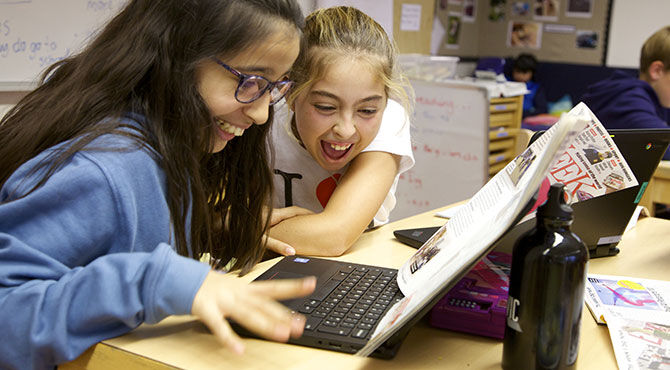How do teachers get to know your child?
If the pandemic has shown educators anything, it is that our most fundamental responsibility is to care for those in our school community.

Such a principle, however, cannot only be seen in moments of crisis – it must be ever-present and ever-evolving to meet the needs of a school community. We must always evaluate the meaning of ‘pastoral care’ and look to build learning environments that are supportive, productive, and positive. This does not mean being ‘permissive’ or unrealistic; it means having the systems, strategies, and communication in place to forge strong relationships on which outstanding learning can be based.
Knowing Every Child
Embedded in our school’s philosophy is the idea that, “…students learn effectively, feel safe, welcome and respected within the community…”, but we are always looking to improve. To do this, it’s often best to start at the simplest point - asking young people what they need from us. The answer, invariably, is simple. To be able to help them organise their learning – which is important, but ‘functional’ - and to know who they are, which is fundamental.Truly knowing our students is not achieved simply by wanting to, it is done through deliberate processes. One such example is the ‘Morning Meeting’ in Primary School. Greeting every child, allowing them to share their ideas, facilitating a group activity, and providing a thoughtful morning message, shows our students that they are heard and known. This may seem simplistic, but such research-driven ideas give direction to knowing our students better.Managing Difficult Situations
It holds that if we better know our students, we are better placed to build resilience within them. Resilience – the ability to ‘manage’ difficult situations – is highly individual but can be ‘worked on’. The more positive the environment, the more the scales ‘tip’ in favour of positive experiences in the mindset of the child, meaning they are better equipped to handle difficult times that might threaten to ‘unbalance’ them. We have seen our resilience pushed in recent months, but we have also seen it shine.Respecting Digital Spaces
We are all ‘digital citizens’ in the modern world. Our children – their parents or teachers – are ‘digital natives’, and may take features of the digital world for granted. It is our responsibility to extend the idea of ‘pastoral care’ to this space. Our core messaging to students is based on ‘respect’ – respect for others, for oneself, for data, and for intellectual property. Anything that impacts our students’ welfare is important to us.Seeing the Invisible
Schools must empower their teachers to be entirely committed to ‘see every child’. To further improve this commitment, however, staff must go beyond the superficial and attempt to see the invisible. With the right support system in place teachers can develop their expertise to better identify the features of every child’s background, interests, and character. With better knowledge, we can offer better care.At the Inter-Community School Zurich (ICS), we ask about your child(ren) before we tell you how we can serve their specific needs. Join us at our next ICS Virtual Primary Open House on Wednesday 28 April. Or contact our Admissions team at contact@icsz.ch. Visit www.icsz.ch for more information.
©2025 Re:locate magazine, published by Profile Locations, Spray Hill, Hastings Road, Lamberhurst, Kent TN3 8JB. All rights reserved. This publication (or any part thereof) may not be reproduced in any form without the prior written permission of Profile Locations. Profile Locations accepts no liability for the accuracy of the contents or any opinions expressed herein.






































